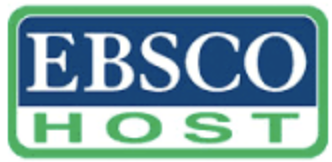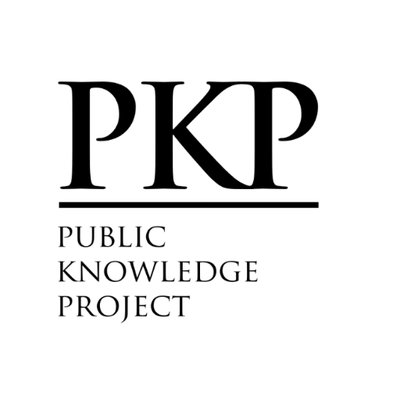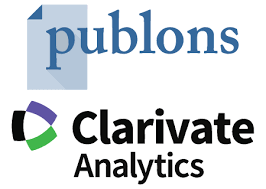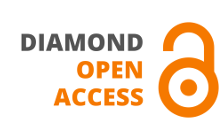External audit quality and transparency of financial communication: the impact of institutional ownership of listed Tunisian firms
DOI:
https://doi.org/10.59051/joaf.v8i1.74Abstract
This paper is devoted to the study of the impact of audit quality and institutional ownership on the transparency of financial communication. The empirical study, relates on a sample of 30 firms in the Tunis Stock Exchange observed over the period (2005-2011),confirms the positive effect of the auditor's reputation on the transparency of financial communication. The results also show that companies with a good financial publication are audited by auditors whose terms of office do not exceed 3 years. Moreover, we find that the interaction between the quality of the audit and the presence of institutional shareholders has an effect on the improvement of the transparency index. This test shows that the impact of the quality of the external audit on the transparency of the information is positive and significant for the companies whose participation of the institutional investors in the capital is strong
Downloads
References
Autore, D. M, Billingsley, R. S, Schneller, M. I. (2009).Information uncertainty and auditor reputation. Journal of Banking and Finance (33): 183-192.
Becker, C., DeFond, M., Jiambalvo, J., &Subramanyam, K. (1998). The effect of audit quality on earnings management. Contemporary Accounting Research, 15(1), 1–24.
Ben ali C. (2008). Impact de la structure de propriété sur la divulgation d’informations financières des sociétés cotées françaises. Doctorat en Sciences de Gestion : Université Paris Dauphine.
Bertrand F. (2000), « Les stratégies de communication financière des grandes sociétés françaises cotées : une étude empirique » CEROG-IAE papier de recherche n° 569
Boujenoui A. Ben amar, W. (2006). Qualité de la communication d’information au sujet des pratiques de gouvernance d’entreprise : le cas canadien. WorkingPaper, 5ième Congrès International de Gouvernance d’Entreprise, Mai, pp. 1-20.
Bushman, R. M., Smith, A. J. (2001). Financial accounting information and corporate governance. Journal of Accounting and Economics (32): 237-333.
Chen, K. Y., Elder, R., & Hsieh, Y. (2007). Corporate governance and earnings management: The implication of corporate governance best-practice principles for Taiwanese listed companies. Journal of Contemporary Accounting and Economics, 3(2), 73–105.
DeAngelo, L. E. (1981). Auditor independence, low balling, and disclosure regulation. Journal of Accounting and Economics, 3(2), 113–127.
DeBoskey, D. G, Jiang, W. (2012). Earnings management and auditor specialization in the post sox era: An examination of the banking industry. Journal of Banking and Finance (36): 613–623.
Dumontier P., Chtourou S., Ayedi S. (2006), « La qualité de l’audit externe et les mécanismes de gouvernance des entreprises : Une étude empirique menée dans le contexte tunisien », 27ème congrès de l’Association Francophone de Comptabilité, Tunis 2006.
Hadani, M., Goranova, M., & Khan, R. (2011).Institutional investors, shareholder activism, and earnings management.Journal of Business Research, 64(12), 1352 1360.
Hakim, F, Omri, M. A. (2010). Quality of the external auditor, information asymmetry, and bid ask spread: Case of the listed Tunisian firms. International Journal of Accounting and Information Management (18): 5 – 18
Healy, P. M, Palepu, k. G, (2001). Information asymmetry, corporate disclosure, and the capital markets: a review of the empirical disclosure literature. Journal of Accounting and economics. (31): 405-440.
Henchiri, Jamel E. (2011),"Voluntary web-based disclosures by Moroccan and Tunisian companies", EuroMed Journal of Business, Vol. 6 Iss 2 pp. 155 - 173
Johnson, V. E., Khurana, I. K., & Reynolds, J. K. (2002).Audit firm tenure and the quality of financial reports. Contemporary Accounting Research, 19(4), 637–660.
Labelle R., Schatt A. (2003). Structure de propriété et communication financière des entreprises françaises. 24ième Congrès de l’Association Française de Comptabilité,
Lakhal F. (2006). Les mécanismes de gouvernement de l’entreprise et la publication volontaire des résultats en France. Comptabilité- Contrôle- Audit12 (2) : 69-92.
Loukil L., Triki M. (2008). L’analyse de l’impact des mécanismes de gouvernance sur le niveau de divulgation volontaire: cas des sociétés tunisiennes non financiers. 29ième Congrès de l’Association Française de Comptabilité, Cergy, Mai, pp. 1-53.
Mayangsari, S. (2007). The auditor tenure and the quality of earnings: Is mandatory auditor rotation useful? Unhas Makassar, 26(28), 1–25.
Mitra, S., Deis, D. R., &Hossain, M. (2007). The empirical relationship between ownership characteristics and audit fees. Review of Quantitative Finance and Accounting, 28(3), 257–285.
O’Sullivan, N. (2000). The impact of board composition and ownership on audit quality: Evidence from large UK companies. The British Accounting Review, 32(4), 397–414.
Paturel R., Matoussi H.; et Jouini S. (2006), «Les motivations de la communication financière des entreprises françaises et britanniques à travers le web», Congrès International de l'Association Française de Finance AFFI 2006.
Piot, C., & Janin, R. (2004) Qualité de l’audit, gouvernance et gestion du résultat comptable en France”, 25eme Congres de l’Association Francophone de Comptabilité, Orleans, Mai, 147-175.
Watson, A. Shrives, P. Marston, C. (2002), « voluntary disclosure of accounting ratios in the UK”, British Accounting Review (2002) 34, 289-313
Xiao J.Z., Yang H. Chow C.W. (2004), «The Determinants And Characteristics of Voluntary Internet-based Disclosure By Listed Chinese Companies», Journal of Accounting and Public Policy. 23, p.191-225
Yaghoobnezhada, A, Royaeeb. R, Geraylic, M. S. (2014). The Effect of Audit Quality on Information Asymmetry: Empirical Evidence from Iran. Asian Journal of Research in Banking and Finance. (4): 128-139.
Downloads
Published
How to Cite
Issue
Section
License
Copyright (c) 2017 Leila GHARSELLAOUI, Anis JARBOUI

This work is licensed under a Creative Commons Attribution-NonCommercial-NoDerivatives 4.0 International License.
Authors who publish with this journal agree to the following terms:
- Authors retain copyright and grant the journal right of first publication with the work simultaneously licensed under a Creative Commons Attribution License that allows others to share the work with an acknowledgement of the work's authorship and initial publication in this journal.
- Authors are able to enter into separate, additional contractual arrangements for the non-exclusive distribution of the journal's published version of the work (e.g., post it to an institutional repository or publish it in a book), with an acknowledgement of its initial publication in this journal.
- Authors are permitted and encouraged to post their work online (e.g., in institutional repositories or on their website) prior to and during the submission process, as it can lead to productive exchanges, as well as earlier and greater citation of published work (See The Effect of Open Access).






















